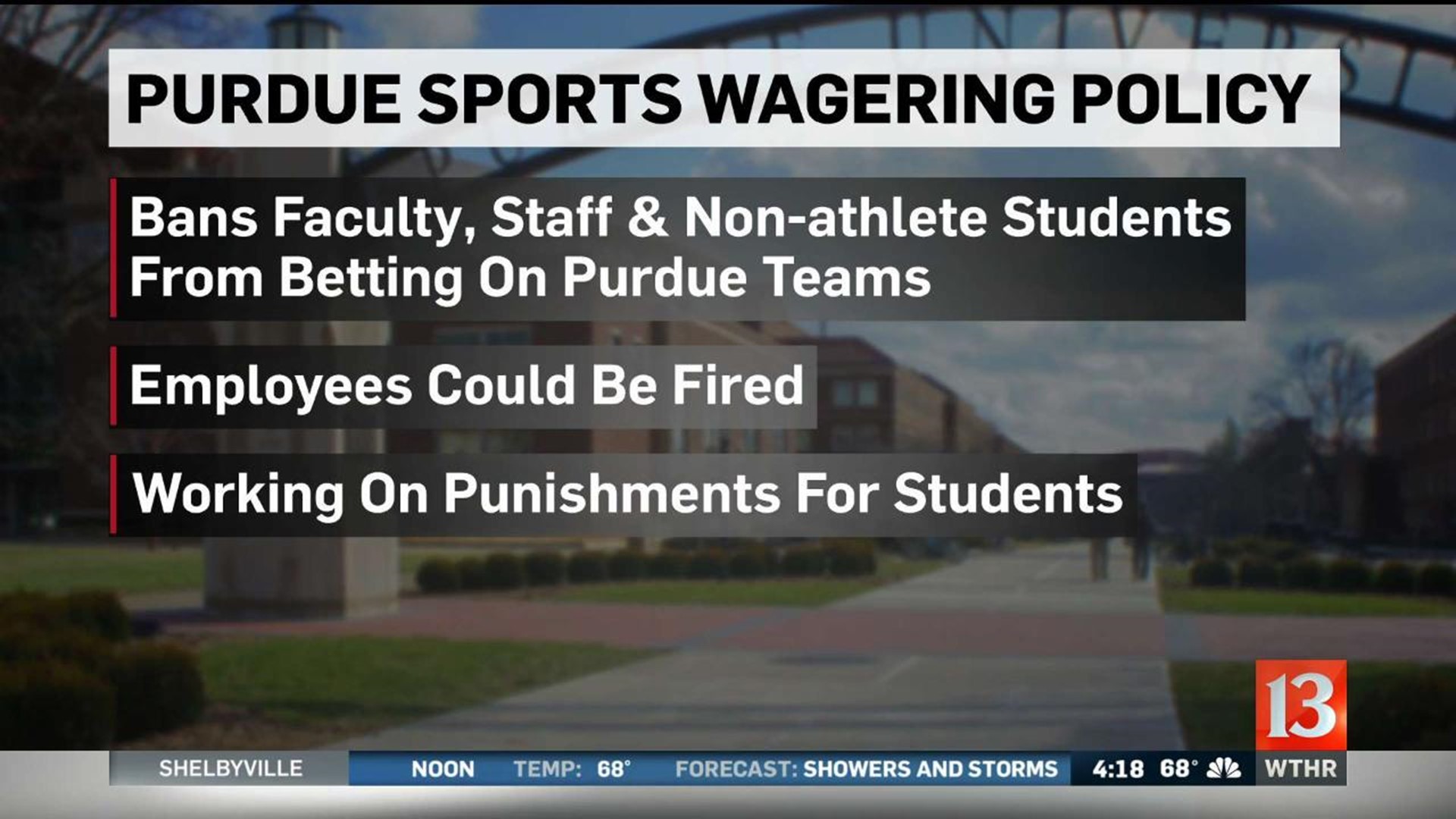NCAA National Study on Collegiate Wagering
In the interests of protecting the health and well-being of the hundreds of thousands of student-athletes who participate in college sports, NCAA research studies the behaviors of student-athletes – including behaviors that could put student-athletes at risk – in order for NCAA members to develop legislation, educational policies and best practices that enhance student-athletes’ experiences in college.
One of those behaviors is gambling. The NCAA has had bylaws restricting sports wagering for many years because leaders in college sports believe sports wagering not only threatens the integrity of the game but also is an entry point into other behaviors that may compromise student-athlete health and well-being.
The NCAA has conducted studies on student-athlete gambling behavior every four years since 2004. The most recent in 2016 surveyed more than 22,000 current college athletes across all three NCAA divisions about their attitudes toward and engagement in various gambling activities, including sports wagering. A summary of findings and detailed slides that examine the trends from 2004 to 2016 are also available.
While pathological gambling is a problem that affects relatively few student-athletes, it is nonetheless a persistent health concern for some individuals: 1.9 percent of males and 0.2 percent of female student-athletes are exhibiting some clinical signs of problem gambling.

- NCAA voices concern on student-athlete performance bets Naima Stevenson-Starks, the NCAA's vice president for law, policy and governance, expressed concern about so-called proposition bets.
- Most of the gambling and sports wagering behaviors of student.athletes involve low stakes. Among student-athletes who have ever gambled for money, the largest reported one-day loss is less than $10 for nearly one-third of men and more than one- half of women. Only 35% of men and 13% of women gamblers have ever lost more than $50 in a day.
- The new variable indicates that 34.9% of the entire sample of student athletes gambled on sports since attending college. However, the level of sports-related gambling among male student athletes is significantly higher than that of their female peers. Specifically, 45.5% of male student athletes have gambled on sports since attending college, compared with only 18.5% of female student athletes (p.
ATLANTIC CITY, N.J. (AP) — An NCAA official voiced concern Thursday over sports betting on the performance of individual college athletes, and she suggested that gambling regulators consider restrictions on such wagers to protect the integrity of the games.
Speaking at the Sports Betting USA 2020 online seminar, Naima Stevenson-Starks, the NCAA's vice president for law, policy and governance, expressed concern about so-called proposition bets involving college athletes.
This type of bet concerns whether a given player will or won't surpass a certain threshold during a game, like whether a quarterback will throw 3 touchdowns or whether a running back will rush for 100 yards.
“Unlike the professional leagues, we are now talking about student-athletes attending class with people who may be betting on their efforts on the field or the court,” Stevenson-Starks said. “That's a concern. If you can think about missing a field goal or a free throw that might make the difference in a result, that's not the most settling thought.”
The NFL expressed similar concern about prop bets on its own players a few years ago. But NFL player props are a much larger segment of the sports betting industry than those on college players, something Stevenson-Starks acknowledged.


A survey Thursday of leading U.S. sportsbooks found little in the way of college player props, although they were more readily available on unlicensed offshore sites that are beyond the reach of U.S. regulators.
A spokeswoman for DraftKings said its college props usually involve which team scores first or last, and how many points a team will score. The lone game listed on the site for Thursday, the Colorado State-Boise State football game, did not offer bets on any individual player.
FanDuel was offering a bet on whether Colorado State quarterback Patrick O'Brien would throw for more than or fewer than 275.5 yards.
Legal sports betting is quickly spreading in the U.S. With six additional states approving or expanding sports betting in this month's elections, more than half the country is poised to have legal sports betting by the end of next year.
New Jersey is in the process of removing its restrictions on college sports betting to allow bets on New Jersey teams and all games played in the state.
The NCAA's concern over player bets resonated with at least one state gambling regulator participating in Thursday's seminar. Cathy Judd-Stein, chairwoman of the Massachusetts Gaming Commission, said one of the things her state will consider in any future legislation to legalize sports betting is “the safety of amateur athletes to protect them against exploitation.”


Stevenson-Starks also voiced renewed support for federal regulation of sports betting that would replace the current system of state-by-state supervision. A push to enact such a law soon after a U.S. Supreme Court decision in 2018 that cleared the way for all 50 states to offer sports betting has languished in the 2 1/2 years that followed.
A federal law “would be the most desirable. I don't think the momentum is there for that to be resurrected, but it is something that should be on the radar,” she said. “The state-by-state approach is more difficult for an institution like the NCAA.”
___
Follow Wayne Parry at http://twitter.com/WayneParryAC
Student Athletes Gambling
Trending
Student Athlete Gambling Loans
- No trending data is available.